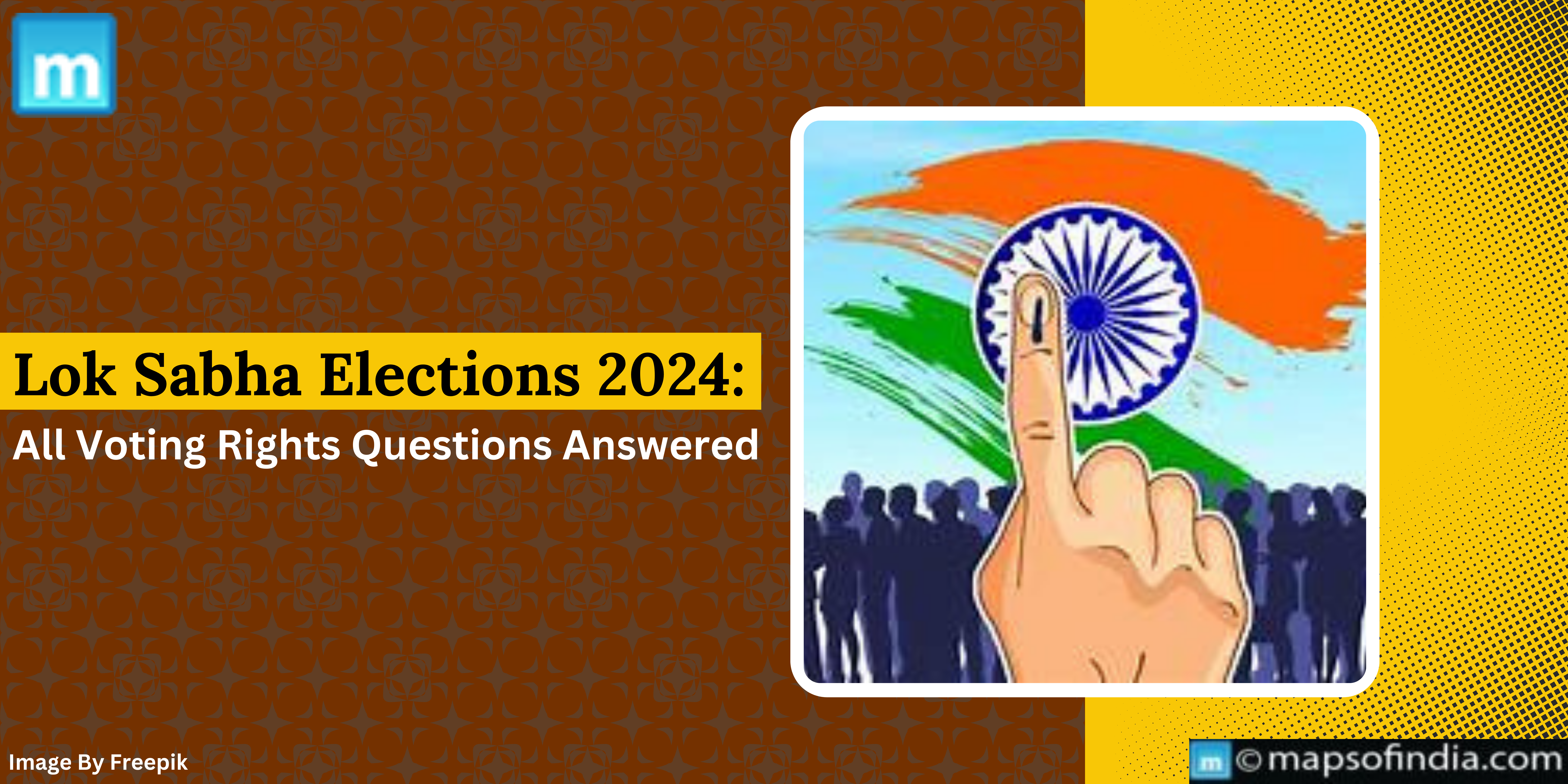As the Lok Sabha elections occur across India, all eligible citizens can exercise their right to vote and participate in the democratic process. The right to vote is guaranteed by the Constitution, which also lays out a number of other rights and benefits and establishes the guidelines for citizens to be eligible for this privilege. Voting is a legal privilege for citizens; it is not a fundamental right.
FAQs related to Indian voting rights
Q1. How do Indians vote?
Polling Booth
All eligible voters must vote in person at the polling booth in India to participate in the electoral process. This ensures that the registered voter casts his or her own ballot and that no one else uses it in lieu of it.
Postal Ballot
A postal ballot can be used to vote by mail under certain circumstances. For those who, for whatever reason, are unable to physically visit a polling place, postal votes are used. The privileges are typically granted to active military personnel stationed domestically and abroad and those performing election-related duties (e.g., electoral officers, police officers, etc.).
Q2. Can persons who are ill or unable cast ballots with assistance from the Election Commission?
Electoral Officers are provided by the Election Commission to help residents who cannot vote in person at polling places or via mail ballot.
Q3. Can Non-Resident Indians (NRIs) cast vote in Indian elections?
Yes, NRIs are eligible to vote in an Indian election as long as they have a current voter ID and their name is listed in the voter list.
Q4. Can inmates vote in the upcoming election?
According to the present law, inmates are not allowed to cast ballots in future elections.
Q5. Is it permitted to take selfies inside polling places?
No. The electoral commission has made using cell phones inside polling places illegal. Voters must give their cell phones to the poll workers or returning officers at the booth, even if they are carrying them. On the other hand, voters are allowed to take pictures of themselves outside the polling place or show the media their inked finger when they leave.
Q6. Do inebriated people have the right to vote?
It is not uncommon to see police officers armed with breathalysers at polling places; these individuals will face legal action. Cases will be filed against anyone who appears at polling places while intoxicated. Straw mouthpieces would be used by officials to approach suspicious people for a fast test; if the individual were discovered to be breaking the law or engaging in misbehaviour, they would be ejected from the voting place.
Q7. Can a person vote remotely, or need to travel?
It is possible to cast a ballot from faraway locations. A multi-constituency remote electronic voting machine, or RVM, has been designed by the Election Commission to enable immigrants to cast ballots from their location in the nation. One remote voting booth by RVM is capable of serving several constituencies. The concerned Returning Officer (RO) of the voter’s home constituency must register them for a remote voting facility within a prearranged window. A region near the voter’s current residence will host a multi-constituency remote polling station once the voter has been validated and declared eligible for distant voting.
Except an electronic ballot display, featuring candidates and symbols in place of a fixed ballot paper sheet, the RVMs will employ the same security measures and voting process as the EVM. Candidate lists and constituencies are displayed on the RVM display when voters scan their cards in front of the station’s presiding officer.
